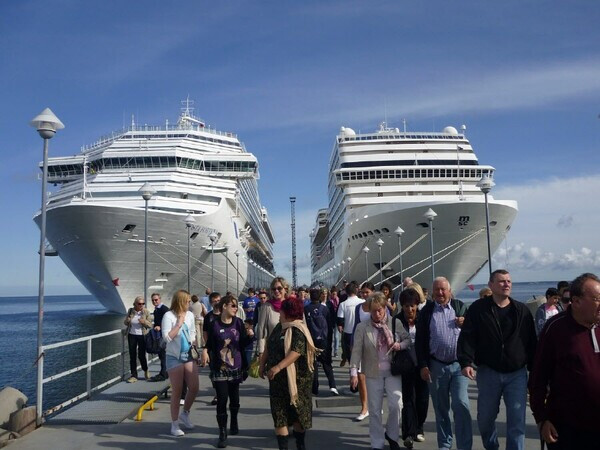
Jeju Island is experiencing a surge in international cruise tourism, with over 600,000 visitors expected to arrive in 2024. This significant increase has fueled optimism for the continued growth of the cruise industry on the island.
As of September 9th, 2024, 289 international cruise ships have already docked in Jeju. The majority of these ships berthed at Gangjeong Port (Jeju Naval Base Complex), with 149 calls, while 140 calls were made at Jeju Port.
With 15 more calls scheduled for the remainder of the year, including 10 at Gangjeong Port and 5 at Jeju Port, the total number of cruise ship arrivals in 2024 is projected to reach 304.
Looking ahead to 2025, the number of scheduled cruise calls is even higher, with 178 calls at Gangjeong Port and 166 at Jeju Port, totaling 344. This represents a 40-call increase compared to 2024.
To accommodate the growing number of cruise ships, Jeju Island has implemented a policy of allocating larger vessels (100,000 tons or more) to Gangjeong Port and smaller vessels to Jeju Port.
The island's cruise tourism industry experienced its peak in 2016, with 507 calls and 1,209,106 passengers. However, the industry suffered a significant decline in 2017 due to China's retaliatory measures against South Korea over the deployment of the Terminal High Altitude Area Defense (THAAD) system, which led to a ban on group tours to South Korea.
Since then, the industry has gradually recovered, with a notable rebound in 2023 following the lifting of COVID-19 restrictions. This year, Jeju welcomed 260 cruise ship calls, bringing in over 620,000 passengers, including 484,409 from China and 53,668 from Japan.
The resurgence of Chinese cruise tourism has been a major driver of the industry's growth. In January 2024, a 130,000-ton cruise ship carrying 4,251 passengers, including 3,019 Chinese tourists, made its inaugural call to Gangjeong Port. To capitalize on this trend, Jeju Island has been actively promoting itself as a cruise destination in the Chinese market.
The increasing number of cruise visitors has also led to a surge in demand for local products. Cruise ships require a significant amount of supplies, including food, beverages, and other goods, which creates new business opportunities for local farmers and producers.
Jeju Island officials are optimistic about the future of cruise tourism and are working to further develop the industry. By improving infrastructure, enhancing services, and promoting Jeju as a premier cruise destination, the island aims to attract even more visitors and stimulate economic growth.
[Copyright (c) Global Economic Times. All Rights Reserved.]




























